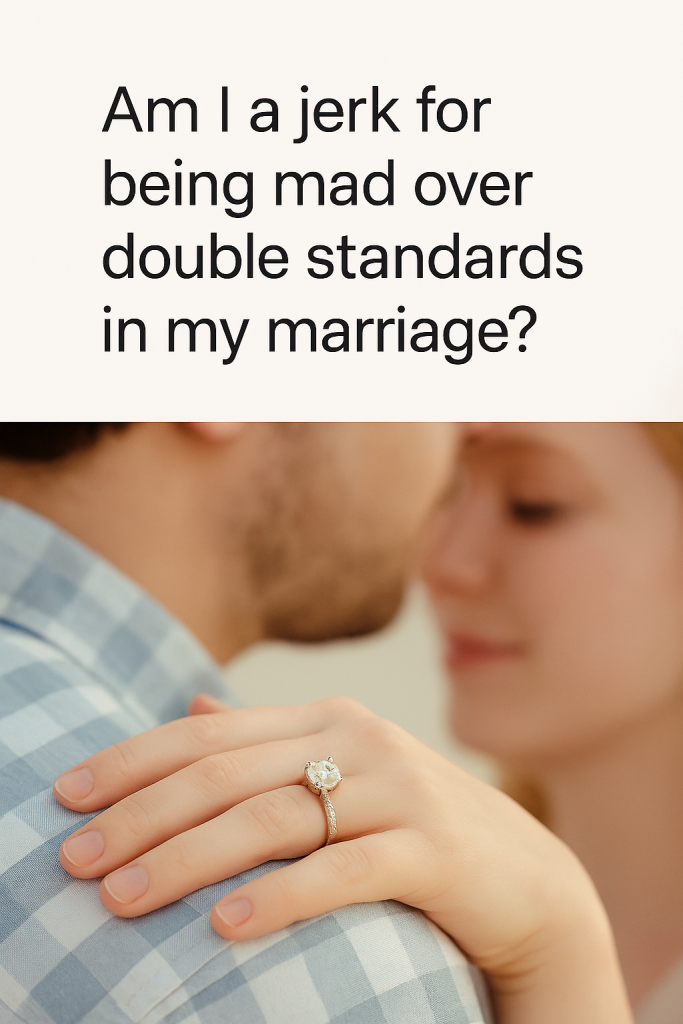In the era of social media, couples often turn to online platforms to share their personal struggles, hoping for advice or validation. Recently, a viral post asking, “Am I a jerk for being mad over double standards in my marriage?” has ignited a passionate discussion about fairness, boundaries, and communication within relationships.
The post features an individual describing a particular grievance concerning the physical layout of their home and an ongoing tension around noise and personal space. They note that their spouse’s bedroom is located on the opposite side of the house and the constant blaring of the television appears to be a sticking point. According to the poster, this setup seemingly violates an unspoken rule or double standard — they feel that their needs and comfort in similar situations might not be treated equally.
This narrative has resonated with many viewers who see the scenario as emblematic of broader, often unspoken issues between partners, such as unequal treatment, differing expectations, and emotional disconnect. The frustration voiced touches on the sensitive topic of double standards in marriages, where one partner’s preferences or behaviors are justified while the other’s are criticized.
Experts in relationship counseling often emphasize the importance of open communication and mutual respect to navigate such challenges. “Many couples experience conflicts rooted in perceived double standards, which can lead to resentment if left unaddressed,” explains a relationship psychologist. “The key is to identify these feelings early on and strive for honest dialogue to align expectations.”
The viral nature of this post has sparked a variety of responses online. Some commenters sympathize strongly with the original poster, arguing that fairness should be foundational to any partnership. Others caution that each relationship has its unique dynamics and that context matters when judging such situations. Several responses also focus on the practical side of the issue, suggesting solutions like noise-canceling headphones, establishing quiet hours, or rearranging living spaces to suit both partners’ preferences better.
Relationship experts also stress that what may appear as double standards could sometimes stem from deeper issues, such as unresolved conflicts, unspoken resentments, or differences in emotional needs. Addressing these core concerns often requires more than just changing physical arrangements—it involves empathy, compromise, and sometimes professional guidance.
In a broader sense, this discussion reflects a growing trend where everyday marital issues are unpacked publicly on social media, allowing people to find community support and varied perspectives. While this can be empowering, it also opens personal matters to wide reinterpretation and debate, which can be both helpful and challenging for those involved.
Ultimately, the question remains: Is it unreasonable to be upset about double standards in marriage? The viral conversation suggests the answer depends largely on communication, respect, and a willingness to address concerns together. For couples, reflecting on this post may serve as a reminder that fairness and understanding are vital ingredients for a harmonious partnership—even when the TV is blaring from across the house.



